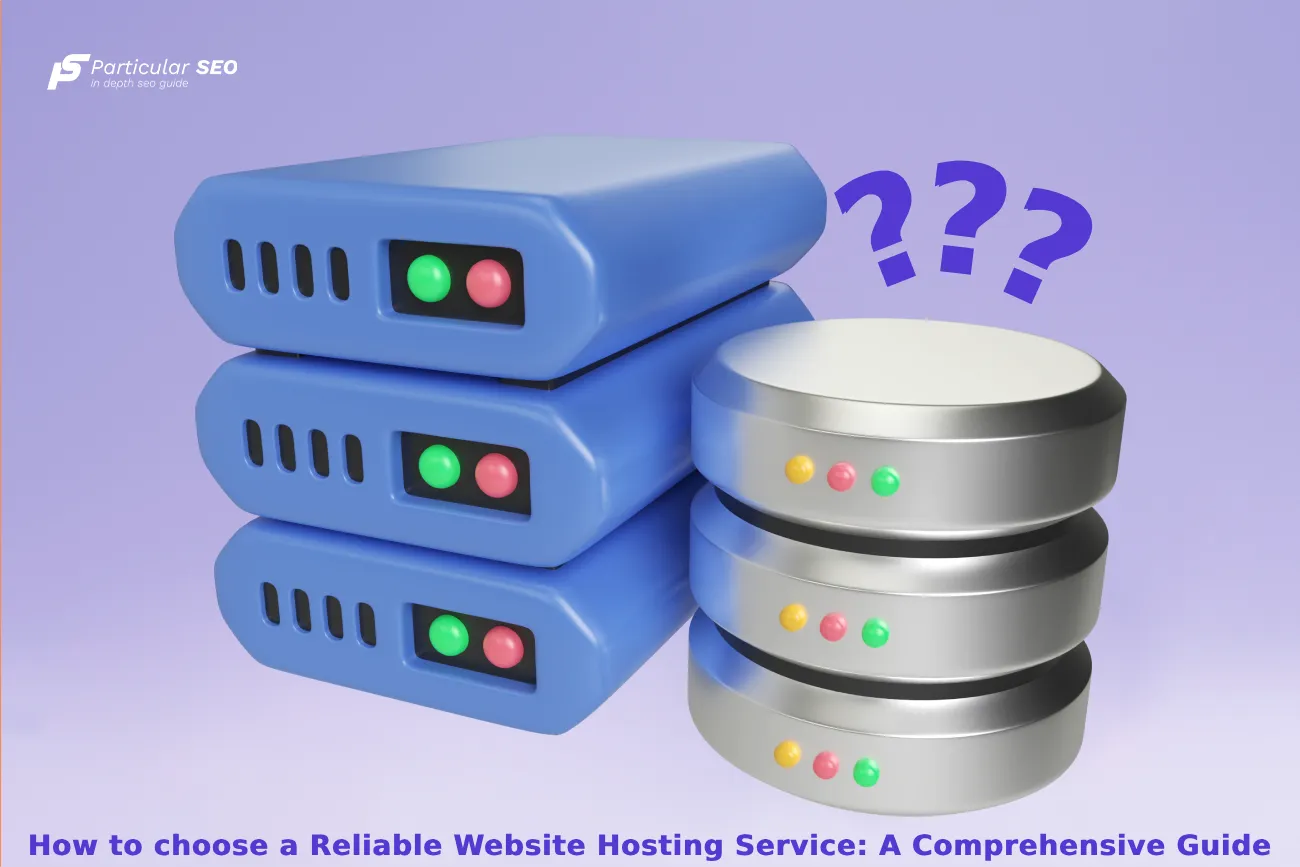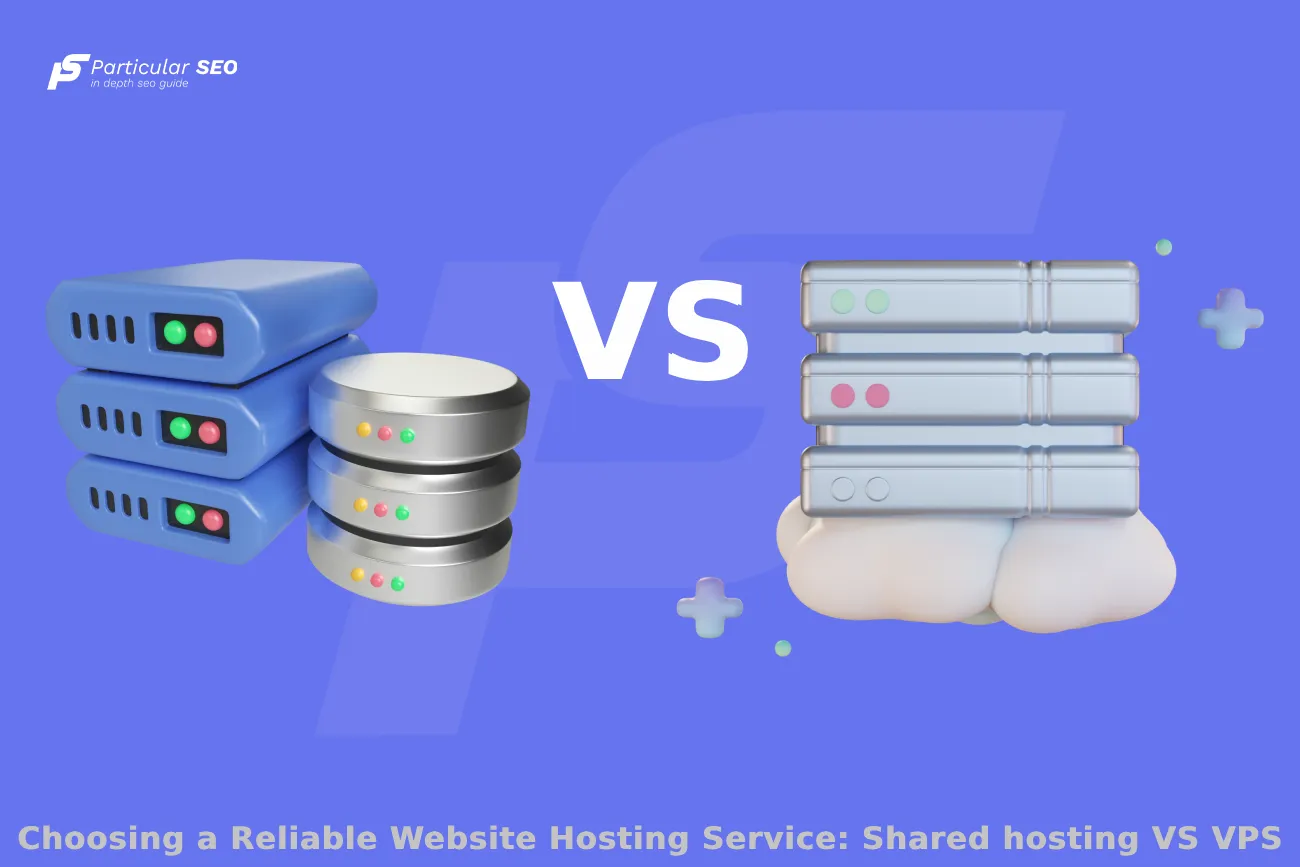
The importance of choosing reliable web hosting
how to Choose Web Hosting ?
Selecting a web hosting service is a critical decision for the success of your online project.
Hosting is more than just a place to store files; it’s the foundation upon which everything on your website relies, from speed and security to user experience and search engine rankings.
Opting for unreliable hosting can lead to data loss, frequent downtime, and a negative impact on your website’s reputation.
Therefore, it’s essential to research and verify the reputation of a hosting provider before making your decision.
how to Choose Web Hosting
Assessing your Website requirements before choosing the right web hosting:
Before making a decision regarding your hosting provider, it’s essential to carefully examine your website requirements.
Determining the size of your website, future growth expectations, and the type of content your website will offer can help identify the appropriate hosting solution.
For instance, if you’re planning for a large e-commerce site, you’ll need larger hosting resources compared to a personal website.
Therefore, it’s crucial to select a hosting provider that meets the unique needs of your website and allows for easy scalability in the future.
Evaluating server availability and service guarantees:
The performance of your server is crucial for hosting your website, as sites experiencing poor performance may lose visitors and see increased bounce rates. When selecting a hosting provider, ensure to assess the server availability and uptime guaranteed by the provider. Additionally, it’s essential to verify the service guarantees offered, such as money-back guarantees and 24/7 uptime guarantees, to ensure that your website will be available and stable at all times.
Performance speed and acceleration techniques:
Website loading speed is a crucial factor in user experience and search engine rankings. Therefore, performance speed should be among the key factors you consider when choosing a hosting provider. Ensure that the hosting provider offers fast servers and utilizes performance acceleration techniques such as image compression and performance acceleration techniques like caching technology and Content Delivery Networks (CDNs) to achieve the maximum possible speed for your website.
Customer support and technical support level:
Customer support is a critical factor in choosing a hosting provider, as you may encounter unexpected technical issues at any time. Check the level of technical support provided by the hosting provider, and ensure that support is available 24/7 with prompt response times. It is preferable to choose a hosting provider that offers multi-channel technical support such as live chat, email, and phone to ensure quick and efficient resolution of any issues.
Hosting cost and additional services provided:
While price isn’t the sole factor to consider when choosing a hosting provider, it remains an important consideration. Compare the prices of different subscription plans and ensure they fit within your budget. Additionally, consider the additional services offered by the hosting provider, such as free domain, free SSL security certificates, daily backup services, and many other features that may be essential for your website.
Refund policy and satisfaction guarantee:
A money-back guarantee is essential to provide customers with assurance that they won’t lose their money if they are dissatisfied with the hosting service. Check the refund policy offered by the hosting provider and ensure it covers a sufficient trial period. Also, review the terms and conditions applicable to the refund policy.
Security and protection provided:
Ensuring the security of your website online should be a top priority. Look for a hosting provider that offers security features such as protection against cyber attacks, data encryption technologies, and daily data backups. Ensure continuous security updates and 24/7 monitoring to guarantee the safety of your website.
User reviews and experiences with hosting providers:
Exploring the experiences of previous users with hosting providers can be incredibly helpful in making a final decision. Read online reviews and comments, and explore web forums and local web communities to learn about real user experiences with hosting providers. This information can provide you with valuable insights into the quality of service provided and the customer experience.
Additional features evaluation in web host
such as Control Panel, Backup, and Integration with Web Applications:
Extra features like an advanced control panel, automated backup service, and integration with web applications add value to your hosting experience. Evaluate the additional features provided by the hosting provider and ensure they align with your needs and facilitate the efficient management of your website online.
Types of website hosting services:
There are various types of hosting services available online, and these types vary based on the needs and requirements of different websites. Among the most common types of hosting are:
Shared hosting:
In this type of hosting, multiple websites are hosted on a single server. The server’s resources are divided among these websites, making it an economical and suitable option for small to medium-sized websites that do not require extensive resources.
Virtual private server (VPS) hosting:
This type of hosting provides an independent virtual environment on a physical server. Each website gets dedicated and independent resources, which enhances performance and flexibility compared to shared hosting.
Dedicated server host :
This service provides a complete server for a single website only, offering full and powerful resources, allowing complete control over the server, customization, and configuration as required.
Cloud hosting
This service relies on a network of interconnected virtual servers over the internet. Cloud hosting offers high flexibility and scalability, allowing easy expansion and payment only for the resources used.
Managed WordPress Hosting: This service offers a dedicated environment for WordPress websites, including automatic updates, custom security management, and specialized technical support for WordPress users.
These are some common types of hosting services, each with its own advantages and disadvantages, catering to different types of websites and their needs.

Differences in web hosting cost:
Shared Hosting cost
Typically the cheapest among hosting types.
VPS hosting cost
Relatively more expensive compared to shared hosting, but much cheaper than dedicated server hosting.
Dedicated Server hosting
The most costly as it provides a complete server for the website.
Cloud hosting
Cloud hosting is billed based on resource consumption, meaning the cost may vary depending on usage.
Differences in web hosting performance
Shared hosting performance
May encounter performance issues with increased website traffic.
VPS performance
Provide better performance than shared hosting due to resource allocation.
Dedicated server hosting performance
Offers the highest levels of performance and speed due to the use of a dedicated server.
Cloud hosting performance
Provides high flexibility and improves website performance due to the ability to dynamically distribute resources.
Flexibility and scalability in hosting
Flexibility and scalability of shared hosting:
- Can be a good option for small websites that do not anticipate rapid growth.
Flexibility and scalability VPS hosting:
- Provide greater flexibility and scalability compared to shared hosting.
Flexibility and Scalability Dedicated Server Hosting:
- Offers full control and absolute flexibility in server configuration and resource expansion.
Flexibility and Scalability Cloud Hosting:
- Characterized by high flexibility and the ability to scale rapidly on demand.
These are some of the key differences between various types of hosting. It’s important to choose the option that aligns with the needs of your website, your budget, and your future growth expectations.
Therefore, hosting users can be classified into the following types.
according to their needs and specific requirements
Webhost for personal websites and blogs
Shared hosting or VPS will be suitable for personal websites and blogs with low to moderate traffic.
Web host small business websites and startups:
Shared hosting, VPS or even cloud hosting will be suitable for small business websites and startups that require moderate resources and future scalability.
Web hosting for large websites and enterprise applications
VPS or dedicated server hosting may be suitable for large websites and enterprise applications that require significant resources and full control over the server.
Web hosting for E-commerce and online stores:
Shared hosting, VPS, or even managed WordPress hosting may be suitable for online stores relying on e-commerce platforms.
Web hosting For High-Traffic websites and massive applications:
Dedicated server hosting or cloud hosting may be suitable for high-traffic websites and massive applications that require significant resources and rapid scalability.
Of course, website needs may change over time, so it’s beneficial to conduct periodic hosting assessments to ensure the site continues to receive optimal service.
Some good shared hosting options
there are several good choices available at reasonable prices. Here are some of the standout options:
Bluehost
- Bluehost is considered one of the best shared hosting services, offering affordable prices and outstanding features such as 24/7 technical support and easy-to-use tools for website creation and management.
HostGator
- HostGator offers competitive shared hosting plans with excellent features like an easy-to-use cPanel control panel and a 45-day money-back guarantee.
SiteGround
- SiteGround is an excellent option for shared hosting, providing high speed, excellent security, and exceptional technical support. It also offers tailored options for WordPress.
A2 Hosting
- A2 Hosting offers shared hosting with high performance and excellent loading speed. It provides a variety of options for local and global servers.
These are some good options for shared hosting at reasonable prices, but you should always compare features, prices, and reviews before making a purchasing decision to ensure you choose the service that perfectly suits your website needs.
Some good VPS (Virtual Private Server) hosting options
there are many services that offer competitive prices with excellent features. Here are some of the best VPS hosting options with competitive prices:
Vultr
- Vultr offers VPS services at low prices with a variety of options, featuring fast server deployment and easy configuration.
DigitalOcean
- DigitalOcean provides VPS services at competitive prices with an easy-to-use control panel and server management. It also boasts an active community and excellent technical support.
Linode
- Linode is a popular choice for VPS hosting, offering powerful servers at competitive prices and a variety of configuration options.
OVHcloud
- OVHcloud offers VPS services at reasonable prices with powerful servers and ample resources It stands out for providing data centers in multiple locations around the world.
Hostwinds
- Hostwinds offers VPS services at affordable prices and includes a variety of configuration and expansion options. It also provides excellent 24/7 technical support.
Remember that when choosing a VPS service, you should consider service features in addition to price, such as performance, data center location, customer support, and available server resources.
Contabo
- Contabo is a German hosting company that offers a variety of hosting services, including Virtual Private Server (VPS) hosting, cloud servers, shared web hosting, and dedicated servers.
Contabo is considered one of the well-known options in the hosting world due to its competitive prices and diverse range of services. The company also provides good technical support and robust resources for the servers it offers.
Let’s summarize all the previous tips into a concise sentence for beginners in the web world looking to purchase hosting for their website.
First and foremost, it’s essential to determine the needs of the website you plan to create.
Do you want a personal website, a blog, an e-commerce store, or a business website?
Defining the purpose of the website helps in making the right decisions regarding hosting.
Next, look for a reliable hosting provider that offers good service at reasonable prices. There are good options available within a 300-word range.
Check the features provided by each hosting provider, such as storage space, bandwidth, and number of email accounts. It’s preferable to choose a plan that fits your current and future needs.
Don’t forget to verify the reliability of the service and the quality of the technical support provided.
There should be a technical support team available 24/7 to assist you in case of any issues or inquiries.
Lastly, don’t overlook the importance of hosting security and loading speed. Check the security and performance record of the hosting provider before making your final decision.
By following these tips, beginners can get reliable hosting service that suits their website needs without exceeding the specified budget.

